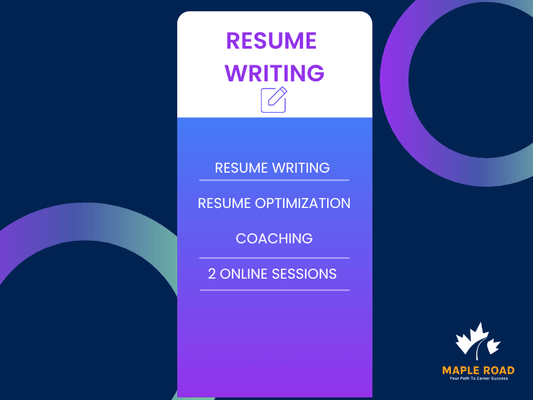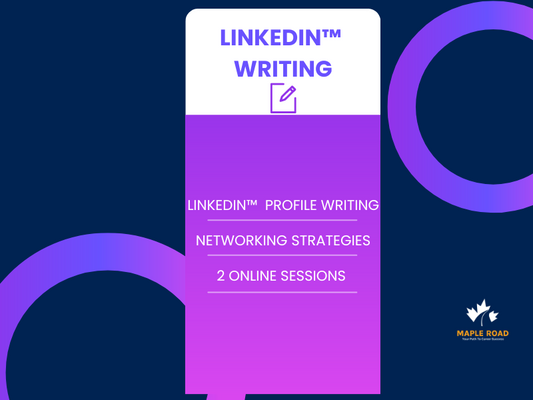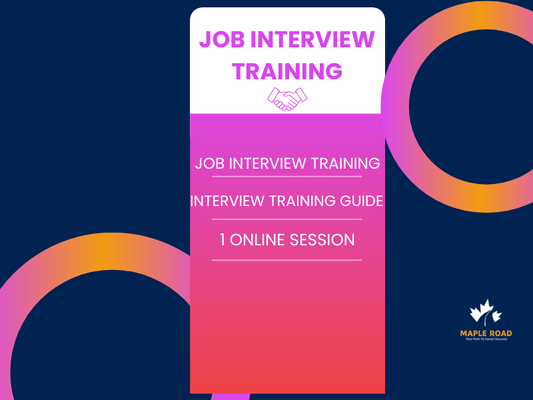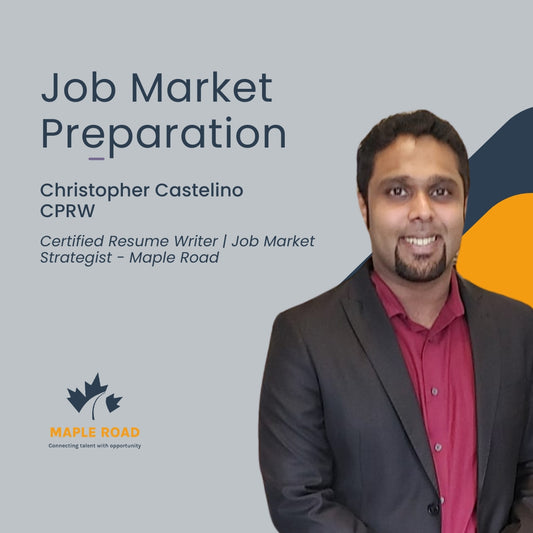Starting a new chapter in Canada is exciting and filled with hope and anticipation for a better future. However, as many immigrants quickly discover, the Canadian job market comes with its own unique challenges. It’s not just about applying for jobs or polishing your resume—there are deeper, more complex realities that can make or break your journey. Let’s dive into these challenges and explore practical, human-centred strategies to overcome them.
1. Credentials Recognition Isn’t Just a Barrier—It’s a Journey

One of the first hurdles many newcomers face is realizing their qualifications might not fully align with Canadian standards. It’s not that your education and experience aren’t valued; it’s that some professions have strict regulations to ensure consistency and public safety. This is especially true for fields like medicine, law, engineering, and teaching, where licensing bodies require additional training or exams to validate foreign credentials.
What’s Really Going On:
- The issue isn’t about discrediting your education—it’s about ensuring your skills meet specific Canadian standards. For instance, engineers might need to learn local building codes, and healthcare professionals may need to pass exams to demonstrate competency in Canada’s healthcare system.
- The process can be expensive and time-consuming. From exam fees to bridging programs, costs can run into thousands of dollars, and the timelines can stretch for months or even years.
How to Navigate It:
- Do Your Homework Early: Before you even arrive, research what’s required for your profession in Canada. Look up provincial regulations, as these can vary, and gather all your educational documents, such as transcripts and certifications.
- Look for Temporary Alternatives: While you’re working toward licensing, consider related roles that don’t require immediate certification. For example:
- Engineers could work as technologists or project coordinators.
- Healthcare professionals might find roles in research or administrative support.
- Teachers could explore tutoring or support staff positions in schools.
- Tap Into Your Network: If you know someone in your industry who has been through the process, ask for advice. Their insights can save you time and help you avoid common pitfalls.
2. Networking Isn’t Just Helpful—It’s the Key to Success

If you’ve ever been told to “network,” it might sound like vague advice. But in Canada, networking isn’t just a good idea—it’s how most jobs are actually filled. Many positions aren’t even advertised, existing only in what’s called the “hidden job market.” For newcomers, this can be frustrating, especially if you’re used to more formal job application systems.
Why Networking Matters So Much:
- Employers in Canada often rely on referrals because it reduces the risk of hiring someone who might not be a good fit. A trusted recommendation goes a long way.
- Networking is about building relationships over time, not just asking for jobs. It’s more about trust and rapport than a quick transaction.
How to Build Your Network:
- Start Small: If the idea of networking feels overwhelming, begin with one-on-one conversations. Reach out to someone in your field and invite them for coffee or a virtual chat. These informal settings are great for asking questions and learning about their career path.
- Attend Industry Events: Look for professional meetups, job fairs, and seminars. These spaces are designed for making connections, so don’t hesitate to introduce yourself and share your story.
- Follow Up with Intention: After meeting someone, send a thank-you email or a LinkedIn message to keep the relationship alive. Mention something specific you talked about to show you were genuinely engaged.
- Practice Patience: Networking is a long game. Focus on building meaningful relationships instead of expecting immediate results.
3. “Canadian Experience” Is a Code for Workplace Adaptability

When employers say they want “Canadian experience,” they’re not necessarily looking for someone who’s worked here before. What they’re really asking is: “Do you understand how we do things?” Canadian workplaces value collaboration, inclusivity, and adaptability. For newcomers, this can feel different from what they’re used to, especially if they’re coming from environments with rigid hierarchies or competitive atmospheres.
What’s Behind the Phrase:
- Canadian workplaces often have flat hierarchies, meaning everyone’s input is valued, regardless of rank. This can be a big shift if you’re used to deferring to managers or senior staff.
- Communication is key. The ability to express ideas clearly, listen actively, and contribute to discussions is often seen as a marker of success.
How to Gain “Canadian Experience”:
- Start with Volunteering: If you’re struggling to get your foot in the door, volunteering is a great way to gain exposure to Canadian workplace dynamics. Choose roles related to your field to make the experience more relevant.
- Learn the Culture: Pay attention to how meetings are conducted, how colleagues communicate, and how decisions are made. Observing and adapting will help you fit in faster.
- Ask for Feedback: In Canada, asking for feedback shows initiative and a willingness to grow. Don’t hesitate to ask your manager or peers for constructive input on your work.
4. Job Applications Demand Extreme Customization

One of the biggest surprises for newcomers to Canada is how tailored their job applications need to be. While a generic resume might work in some countries, Canadian employers expect applications that are specifically designed for the role they’re hiring for. This means going beyond a simple copy-paste of your qualifications and deeply aligning your resume and cover letter with the job description.
Why It’s Necessary:
- Applicant Tracking Systems (ATS): Many companies use software to filter resumes before they even reach a human. If your resume doesn’t match the keywords in the job posting, it might never be seen.
- Cultural Fit: Employers aren’t just looking for someone who can do the job; they’re looking for someone who aligns with their company’s values and culture. A generic application doesn’t demonstrate that you’ve done your research or understand their needs.
How to Craft Winning Applications:
- Dissect the Job Description: Highlight the keywords, required skills, and responsibilities listed. Use these exact terms (where appropriate) in your resume and cover letter.
- Quantify Your Achievements: Avoid vague statements like “managed a team.” Instead, say, “Managed a team of 10 employees, increasing productivity by 20% through streamlined workflows.”
- Tailor for Every Role: It’s tempting to use the same resume for multiple applications, but employers can tell when a resume is generic. Tailor each application to show how your skills directly match the role.
- Create a Professional Cover Letter: Use your cover letter to connect your experience to the company’s goals. Mention specific projects or values from their website that resonate with you.
- Focus on Clarity and Brevity: Canadian employers prefer concise resumes (ideally one or two pages) that get straight to the point. Use bullet points and avoid overly technical jargon unless the role requires it.
5. Overcoming Language Barriers Requires More Than Practice

Even for immigrants who are proficient in English or French, navigating the subtleties of workplace communication can be challenging. From idioms and slang to the tone used in emails, mastering these nuances is often just as important as grammar and vocabulary. Beyond speaking well, listening actively and engaging thoughtfully are critical skills.
What Makes Language a Barrier:
- Nuances in Communication: Canadian workplaces value clear and polite communication, which can include everything from word choice to body language.
- Accent Bias: While Canada is multicultural, unconscious bias around accents can sometimes create barriers.
- Cultural Communication Styles: Directness, humour, and even how people handle conflict can vary greatly from other cultures.
How to Overcome These Challenges:
- Practice Active Listening: Pay close attention to what’s being said, and show engagement by nodding or paraphrasing what you’ve heard. For example, “So, you’re suggesting we focus on the budget first—is that correct?”
- Join Conversation Groups: Many communities offer informal language meetups where you can practice in a supportive environment. These groups help you pick up conversational nuances and confidence.
- Use Non-Verbal Communication: A warm smile, steady eye contact, and open body language can help convey enthusiasm and confidence, even if you’re still perfecting your verbal skills.
- Ask Thoughtful Questions: During meetings or interviews, asking relevant questions not only shows you’re listening but also demonstrates curiosity and engagement. For example, “Could you elaborate on the team’s current goals for this project?”
- Record and Review: Practice speaking about your skills or experiences by recording yourself. This can help you identify areas for improvement, like clarity or pacing.
6. References Can Make or Break Your Application

In Canada, references play a pivotal role in hiring decisions. Employers often contact former colleagues or supervisors to verify your skills, work ethic, and character. For newcomers, the lack of Canadian references can feel like an unfair disadvantage, but there are ways to address this gap.
Why References Are So Critical:
- Validation of Skills: References provide an additional layer of trust, confirming what you’ve claimed in your resume or interview.
- Cultural Assurance: Employers often feel more confident hiring someone who has already been vetted by another Canadian workplace.
How to Build and Leverage References:
- Start Building Canadian References: Volunteering, internships, or temporary jobs are excellent ways to establish professional relationships that can lead to strong references.
- Prepare Your Referees: Reach out to your former colleagues or supervisors (even from your home country) and let them know what kind of role you’re applying for. Provide them with context about your new environment and the skills you want highlighted.
- Use Personal References Sparingly: If professional references aren’t available, consider asking a mentor, teacher, or community leader who can speak to your character and transferable skills.
- Maintain Relationships: Stay connected with your referees, even after moving on to a new role. A quick update email about your career progress can keep the relationship strong.
7. The Job Market Varies Greatly by Region

Many newcomers assume the Canadian job market is uniform across the country, but in reality, employment opportunities vary significantly by region. Urban centers like Toronto, Vancouver, and Montreal are hubs for industries like finance, tech, and creative fields, while smaller cities and provinces often focus on niche industries like energy, agriculture, or manufacturing. Understanding these regional differences is critical for targeting your job search effectively.
What You Should Know:
- Urban vs. Rural Dynamics: Cities like Toronto and Vancouver offer a wider variety of jobs but come with high living costs and intense competition. Smaller cities or rural areas may have fewer opportunities but often offer a lower cost of living and less crowded markets.
- Provincial Strengths: Each province has its own economic drivers. For instance:
- Alberta is known for energy and natural resources.
- Ontario is a hub for technology, finance, and manufacturing.
- British Columbia has a strong focus on tech and film industries.
- Bilingual Regions: In Quebec and increasingly in federal government roles, proficiency in both French and English is often required.
Strategies for Navigating Regional Differences:
- Research Regional Trends: Explore labour market data to understand which provinces have the highest demand for your profession.
- Target Smaller Markets: If you’re struggling to find work in a competitive city, consider relocating to a less crowded market where your skills may be in higher demand.
- Understand Local Licensing Requirements: Some provinces have specific certification or licensing rules for certain professions. For example, healthcare requirements can differ significantly between provinces.
- Network Locally: Join local community groups or professional associations to build connections within your target region.
8. Staying Organized During the Job Search Process

The hiring process can sometimes be surprisingly long and multi-staged, with some roles requiring several rounds of interviews, reference checks, and even probationary periods. This can be a stark adjustment for newcomers accustomed to quicker hiring timelines.
What You Should Know:
- Multiple Steps: For mid-level and senior roles, it’s not uncommon to go through three or more rounds of interviews, each focusing on different skills or competencies.
- Delays in Decision-Making: Employers may take weeks—or even months—to make a final decision, particularly in government or unionized sectors.
- Probationary Periods: Many Canadian jobs include a probationary period, typically lasting three months, during which the employer assesses your fit for the role.
Strategies for Staying Organized and Proactive:
- Track Your Applications: Use a spreadsheet or job search tracker to monitor where you’ve applied, which stage you’re in, and any follow-ups needed. Include details like application deadlines, contacts, and interview dates.
- Follow Up Professionally: After interviews, send a polite thank-you email. If you haven’t heard back within a week of their stated timeline, follow up to express continued interest.
- Prepare for Multi-Round Interviews: Treat each interview as an opportunity to expand on what you’ve shared previously. Research the company thoroughly and anticipate different kinds of questions for each stage (e.g., behavioural, technical, cultural fit).
- Stay Productive During Delays: While waiting for a decision, use your time wisely. Take a short course, attend a networking event, or work on a side project that enhances your skills or portfolio.
9. Bias Exists, But It Can Be Overcome

While Canada is celebrated for its diversity, bias—whether conscious or unconscious—can still influence hiring decisions. For newcomers, this can feel like an uphill battle, but there are ways to counteract these challenges and showcase your strengths.
What You Should Know:
- Unconscious Bias: Employers may not intentionally discriminate, but unfamiliarity with certain qualifications or cultural differences can create doubts.
- Cultural Fit Concerns: Employers might hesitate if they’re unsure how well a candidate will adapt to the company’s culture or communication style.
Strategies to Navigate Bias:
- Tailor Your Approach: Highlight transferable skills and achievements that resonate universally, such as teamwork, problem-solving, or leadership.
- Showcase Adaptability: Use interviews to demonstrate your ability to adjust to new environments. Share specific examples of how you’ve successfully worked in diverse or unfamiliar settings.
- Educate Through Your Application: If your credentials or experiences are uncommon in Canada, use your cover letter to explain their relevance. For example, “My degree in [field] from [university] prepared me with [specific skills] that align closely with the requirements of this role.”
- Lean on Referrals: Networking and strong references can help bypass bias by putting your application in front of decision-makers with a personal recommendation.
10. Volunteering and Temporary Roles can be a Gateway to Employment

For newcomers struggling to break into their field, volunteering or accepting temporary roles can provide a crucial stepping stone. These positions help build Canadian experience, expand your professional network, and demonstrate your commitment to contributing.
Why It Matters:
- Canadian Experience: Even short-term roles can familiarize you with workplace norms and provide valuable local references.
- Networking Opportunities: Temporary roles and volunteer positions often connect you with people who can recommend you for permanent positions.
- Skill Development: These roles can help you refine soft skills like teamwork and communication while exposing you to Canadian workplace expectations.
Strategies for Making the Most of These Opportunities:
- Choose Roles Strategically: Look for positions that align with your field or allow you to use transferable skills. For example, an IT professional could volunteer for a nonprofit’s tech team.
- Treat It Like a Job: Approach volunteer or temporary roles with the same professionalism and dedication as a full-time job. This leaves a lasting impression and increases the likelihood of recommendations.
- Leverage Your Network: Use these opportunities to meet people in your industry and learn about potential openings.
- Highlight These Roles: Don’t underestimate the value of these experiences on your resume. Focus on achievements and contributions to show their relevance.
Final Thoughts
Navigating the Canadian job market as an immigrant is not without its challenges, but each hurdle presents an opportunity for growth. Understanding these realities and adopting a proactive, strategic approach can turn potential obstacles into stepping stones for success. Persistence, adaptability, and a willingness to learn will set you apart, and help you build the career you’ve envisioned.













